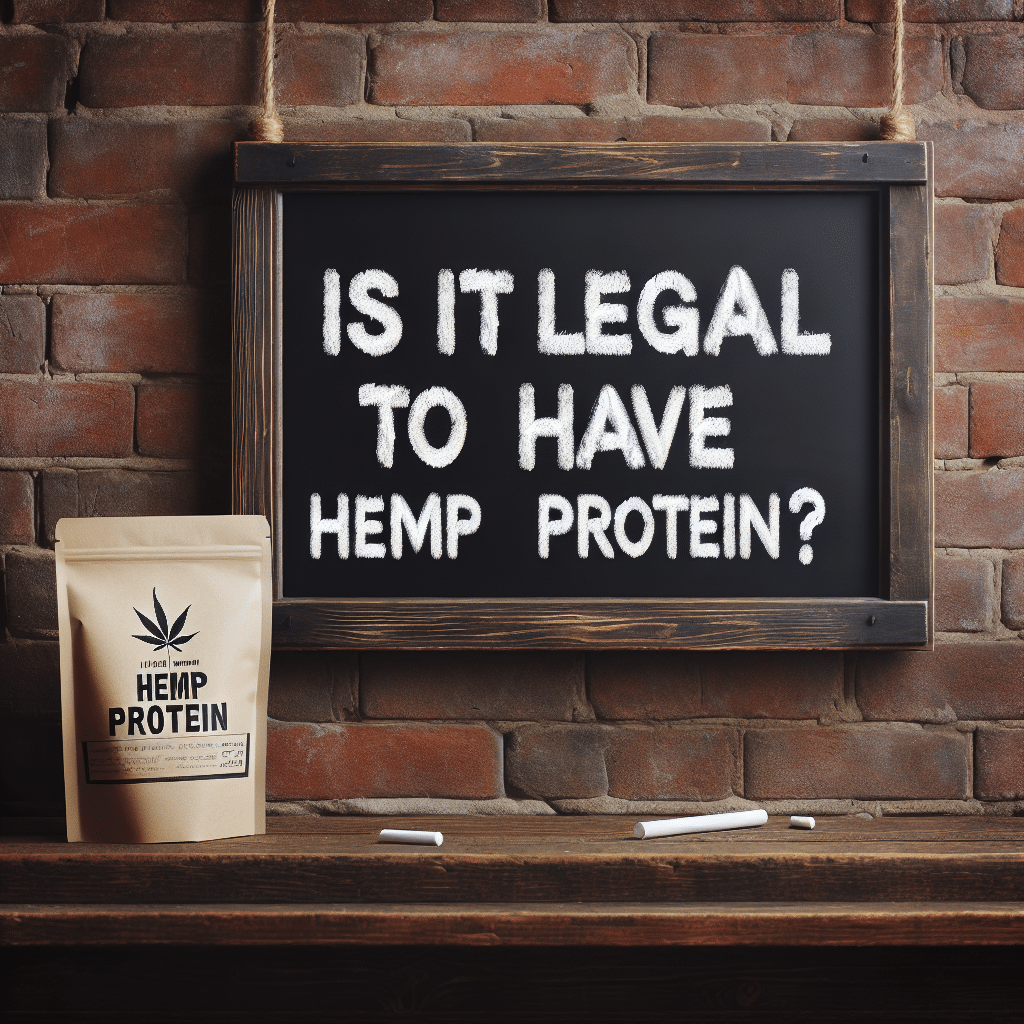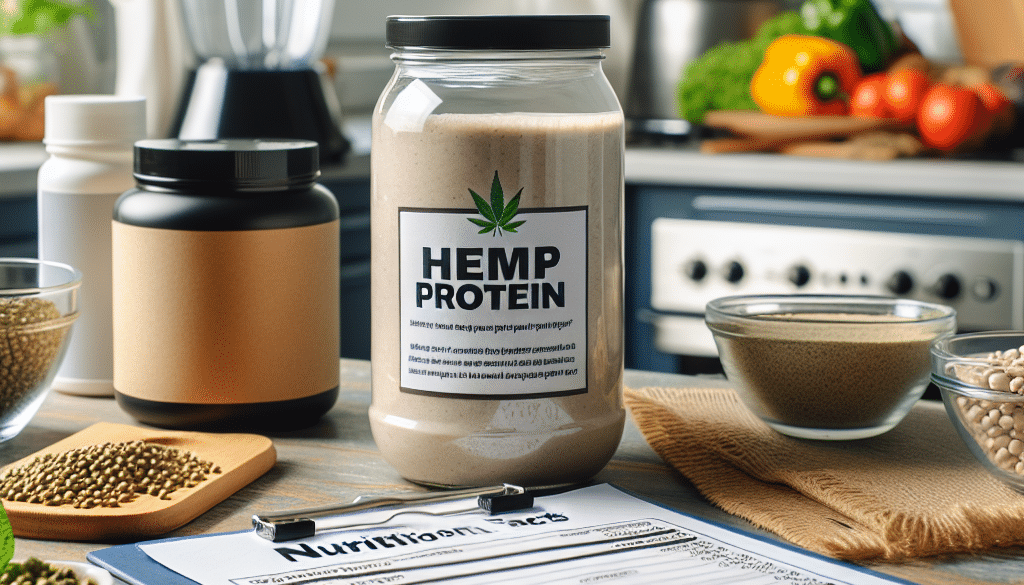Is It Legal To Have Hemp Protein?
-
Table of Contents
- Hemp Protein Legality: Understanding Its Status and Benefits
- Understanding Hemp and Its Legal Status
- Regulations Governing Hemp Protein
- Benefits of Hemp Protein
- Global Perspective on Hemp Protein Legality
- Case Studies and Statistics
- Conclusion: The Legality and Promise of Hemp Protein
- Discover ETprotein’s Premium Hemp Protein Products
Hemp Protein Legality: Understanding Its Status and Benefits

As the health and wellness industry continues to grow, consumers are constantly on the lookout for new, nutritious supplements to add to their diets. Hemp protein has emerged as a popular choice due to its rich nutritional profile and potential health benefits. However, given the complex legal landscape surrounding hemp and its derivatives, many people are left wondering: Is it legal to have hemp protein? This article delves into the legality of hemp protein, its benefits, and the current regulations that govern its use.
Understanding Hemp and Its Legal Status
Hemp is a variety of the Cannabis sativa plant species that is grown specifically for industrial use. Unlike marijuana, which is also derived from Cannabis sativa, hemp contains very low levels of THC (tetrahydrocannabinol), the psychoactive compound that causes the “high” associated with marijuana use. The legal distinction between hemp and marijuana is based on the THC content; hemp is defined as having 0.3% or less THC on a dry weight basis.
In the United States, the Agriculture Improvement Act of 2018, commonly known as the Farm Bill, legalized the cultivation of hemp and removed it from the list of controlled substances. This legislation paved the way for the legal production, sale, and consumption of hemp-derived products, including hemp protein, provided they contain less than 0.3% THC.
Regulations Governing Hemp Protein
The legality of hemp protein is closely tied to the regulations set forth by various governmental bodies. In the U.S., the Food and Drug Administration (FDA) is responsible for regulating food products, including hemp protein. While the FDA has not formally approved hemp protein as a dietary supplement, it is generally recognized as safe (GRAS) for consumption.
However, the FDA continues to evaluate the regulatory frameworks for hemp-derived products and has issued warnings to companies making unsubstantiated health claims about their hemp products. It is crucial for consumers to purchase hemp protein from reputable sources that comply with current regulations and labeling requirements.
Benefits of Hemp Protein
Hemp protein is derived from the seeds of the hemp plant and is known for its high-quality protein content and nutritional value. Here are some of the benefits associated with hemp protein:
- Complete Protein Source: Hemp protein contains all nine essential amino acids, making it a complete protein that supports muscle repair and growth.
- Rich in Fiber: Hemp protein is a good source of dietary fiber, which promotes digestive health and can aid in weight management.
- Heart Health: Hemp seeds are rich in omega-3 and omega-6 fatty acids, which are beneficial for heart health and can help reduce inflammation.
- Mineral Content: Hemp protein includes minerals such as magnesium, iron, and zinc, which are vital for various bodily functions.
- Plant-Based: As a plant-based protein, hemp is suitable for vegetarians and vegans, as well as those with dietary restrictions such as lactose intolerance.
These benefits make hemp protein an attractive option for individuals looking to enhance their diet with a nutritious supplement.
Global Perspective on Hemp Protein Legality
The legal status of hemp protein is not uniform across the globe. While many countries have followed the U.S. in distinguishing hemp from marijuana based on THC content, others maintain stricter regulations. For instance, in the European Union, hemp cultivation is legal provided the THC content does not exceed 0.2%. In Canada, hemp protein is legal and regulated under the Industrial Hemp Regulations (IHR).
It is essential for consumers and businesses to be aware of the specific regulations in their country or region to ensure compliance with local laws when purchasing or selling hemp protein.
Case Studies and Statistics
Several studies have highlighted the growing market for hemp protein and its increasing acceptance. Market research indicates that the global hemp-based foods market is expected to grow significantly in the coming years, driven by consumer demand for healthy and sustainable plant-based products.
Case studies of companies that have successfully navigated the legal landscape to offer hemp protein products can provide valuable insights. These examples demonstrate the potential for hemp protein to be a viable component of the health and wellness industry, provided that companies adhere to legal guidelines and transparent practices.
Conclusion: The Legality and Promise of Hemp Protein
In conclusion, hemp protein is legal in many parts of the world, including the United States, as long as it adheres to the THC content thresholds established by law. Its numerous health benefits and status as a complete plant-based protein make it a popular choice for consumers seeking to improve their dietary intake. As the regulatory environment continues to evolve, it is crucial for both consumers and businesses to stay informed about the latest developments in hemp legislation.
Discover ETprotein’s Premium Hemp Protein Products
If you’re looking to incorporate high-quality hemp protein into your diet, ETprotein offers a range of organic and non-GMO protein products that meet the highest standards of purity and taste. Their hemp protein is carefully sourced and processed to ensure that you receive all the nutritional benefits without any unwanted additives.
ETprotein’s commitment to excellence extends to their entire product line, which includes a variety of plant-based proteins suitable for various dietary needs and preferences. By choosing ETprotein, you can trust that you’re getting a product that is not only legal but also aligns with your health and wellness goals.
About ETprotein:
ETprotein, a reputable protein and L-(+)-Ergothioneine (EGT) Chinese factory manufacturer and supplier, is renowned for producing, stocking, exporting, and delivering the highest quality organic bulk vegan proteins and L-(+)-Ergothioneine. They include Organic rice protein, clear rice protein, pea protein, clear pea protein, watermelon seed protein, pumpkin seed protein, sunflower seed protein, mung bean protein, peanut protein, and L-(+)-Ergothioneine EGT Pharmaceutical grade, L-(+)-Ergothioneine EGT food grade, L-(+)-Ergothioneine EGT cosmetic grade, L-(+)-Ergothioneine EGT reference grade and L-(+)-Ergothioneine EGT standard. Their offerings, characterized by a neutral taste, non-GMO, allergen-free attributes, with L-(+)-Ergothioneine purity over 98%, 99%, cater to a diverse range of industries. They serve nutraceutical, pharmaceutical, cosmeceutical, veterinary, as well as food and beverage finished product distributors, traders, and manufacturers across Europe, USA, Canada, Australia, Thailand, Japan, Korea, Brazil, and Chile, among others.
ETprotein specialization includes exporting and delivering tailor-made protein powder and finished nutritional supplements. Their extensive product range covers sectors like Food and Beverage, Sports Nutrition, Weight Management, Dietary Supplements, Health and Wellness Products, and Infant Formula, ensuring comprehensive solutions to meet all your protein needs.
As a trusted company by leading global food and beverage brands and Fortune 500 companies, ETprotein reinforces China’s reputation in the global arena. For more information or to sample their products, please contact them and email sales(at)ETprotein.com today.












